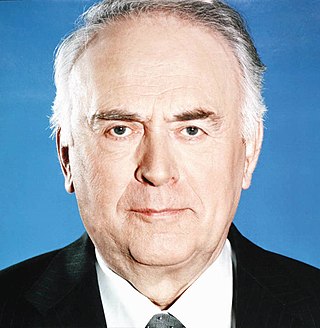
The 2002 Saxony-Anhalt state election was held on 21 April 2002 to elect the members of the 4th Landtag of Saxony-Anhalt. The incumbent Social Democratic Party (SPD) minority government led by Minister-President Reinhard Höppner was defeated. The SPD fell to third place, while the Christian Democratic Union (CDU) moved into first. The CDU subsequently formed a coalition with the Free Democratic Party (FDP), and CDU leader Wolfgang Böhmer was elected Minister-President.

The Landtag of Saxony, also known in English as the Saxon State Parliament, is the legislature of the Free State of Saxony, one of Germany's sixteen states. It is responsible for legislation, control of the government, and electing some state officials. The Landtag has existed in various forms since 1831, but the current body was established during German reunification in 1990. The Landtag is directly elected and has a term of five years.

The 2006 Saxony-Anhalt state election was held on 26 March 2006 to elect the members of the 5th Landtag of Saxony-Anhalt. The incumbent coalition government of the Christian Democratic Union (CDU) and Free Democratic Party (FDP) led by Minister-President Wolfgang Böhmer lost its majority. The CDU subsequently formed a coalition with the Social Democratic Party (SPD).
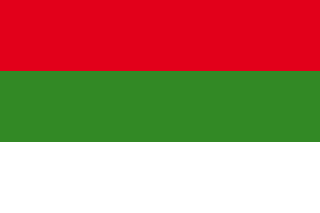
The Free State of Anhalt was formed after Joachim Ernst, Duke of Anhalt abdicated on 12 November 1918, ending the Duchy of Anhalt. It became a state of Germany under the Weimar Republic (1919–1933) and for most of that time it was led by politicians from the Social-Democratic Party of Germany (SPD).
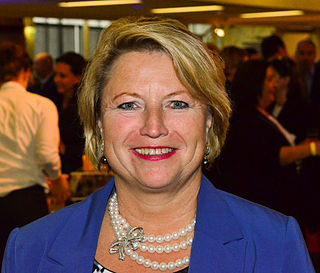
Cornelia Pieper is a German politician of the liberal Free Democratic Party (FDP). She currently serves as German consul general in Gdańsk, Poland.

The 2011 Saxony-Anhalt state election was held on 20 March 2011 to elect the members of the 6th Landtag of Saxony-Anhalt. The incumbent grand coalition of the Christian Democratic Union (CDU) and Social Democratic Party (SPD) led by Minister-President Wolfgang Böhmer retained its majority and continued in office. Böhmer retired at this election, and his successor Reiner Haseloff was elected as the new Minister-President after the coalition was confirmed.

The 2016 Saxony-Anhalt state election was held on 13 March 2016 to elect the members of the 7th Landtag of Saxony-Anhalt. The incumbent grand coalition of the Christian Democratic Union (CDU) and Social Democratic Party (SPD) led by Minister-President Reiner Haseloff lost its majority. The Alternative for Germany (AfD) debuted at 24.3%, with every other parliamentary party recording losses, particularly the SPD and The Left.
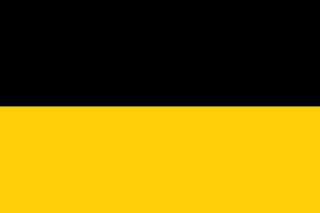
The State of Saxony-Anhalt was a subdivision of the Soviet occupation zone and state of East Germany which broadly corresponds with the present-day German state Saxony-Anhalt. After the retreat of the US troops from the Western parts - following the agreements of the Yalta Conference - it was formed as administrative division called Province of Saxony by the Soviet Military Administration in Germany (SMAD) in July 1945. The province was a re-establishment of the Province of Saxony which existed in Prussia from 1816 to 1944. On 1 July 1944, the Province of Saxony was divided along the lines of its three government districts of Halle-Merseburg, Magdeburg and Erfurt. The two provinces became part of the new state including small parts of Thuringia (Allstedt) and Soviet-occupied parts of Anhalt (Dessau) and Brunswick. Following the first election for the Landtag in October 1946, the state was renamed to Province of Saxony-Anhalt on the same day. With the abolition of Prussia in February 1947, it was named State of Saxony-Anhalt. Compared to the administrative divisions of Nazi Germany, it comprised the Gaue Magdeburg-Anhalt, Halle-Merseburg and small parts of Southern Hanover-Brunswick and Thuringia.

State elections were held in the Soviet occupation zone of Germany on 20 October 1946 to elect the state legislatures of Mecklenburg-Vorpommern, Brandenburg, Saxony, Saxony-Anhalt and Thuringia. They were the only elections held in the future territory of East Germany before the establishment of the German Democratic Republic in 1949, and the only free and fair elections in that part of Germany between 1932 and the Peaceful Revolution.

The 1998 Saxony-Anhalt state election was held on 26 April 1998 to elect the members of the 3rd Landtag of Saxony-Anhalt. The incumbent government was a minority coalition of the Social Democratic Party (SPD) and The Greens led by Minister-President Reinhard Höppner, supported by the Party of Democratic Socialism (PDS). The Christian Democratic Union (CDU) suffered major losses, mostly to the national conservative German People's Union (DVU). The Greens fell out of the Landtag. After the election, the SPD formed a new minority government alone with the support of the PDS, and Höppner continued in office.

The 1994 Saxony-Anhalt state election was held on 26 June 1994 to elect the members of the 2nd Landtag of Saxony-Anhalt. The incumbent government of the Christian Democratic Union (CDU) and Free Democratic Party (FDP) led by Minister-President Christoph Bergner was defeated. The FDP suffered a 10-point swing and lost its seats in the Landtag, while the CDU narrowly remained the largest party with 34.4% of votes. After the election, the Social Democratic Party (SPD) formed a minority government with The Greens, tolerated by the Party of Democratic Socialism (PDS). This new government became known as the "Magdeburg model".

The 1990 Saxony-Anhalt state election was held on 14 October 1990 to elect the members of the first Landtag of Saxony-Anhalt. It was the first election held in Saxony-Anhalt since the reunification of Germany, which took place on 3 October. The Christian Democratic Union (CDU) led by Gerd Gies emerged as the largest party with 39.0%, followed by the Social Democratic Party (SPD) with 26.0%. The CDU formed a coalition with the Free Democratic Party (FDP), and Gies became Saxony-Anhalt's first post-reunification Minister-President.
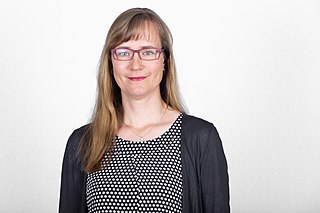
The 2021 Saxony-Anhalt state election was held on 6 June 2021 to elect the 8th Landtag of Saxony-Anhalt. The outgoing government was coalition of the Christian Democratic Union (CDU), Social Democratic Party (SPD), and The Greens, led by Minister-President Reiner Haseloff.

Katja Pähle is a German politician of the Social Democratic Party (SPD). Since 2016, she has served as chairwoman of the SPD parliamentary group in the Landtag of Saxony-Anhalt. She has also been deputy leader of the party's state branch since 2015, and a member of the SPD federal executive since 2017. She was the party's lead candidate for the 2021 Saxony-Anhalt state election.

Eva von Angern is a German lawyer and politician of The Left. She has been a member of the Landtag of Saxony-Anhalt since 2002, and chairwoman of the Left parliamentary group since December 2020. Previously, she was deputy chairwoman since 2014. She was the party's lead candidate for the 2021 state election.
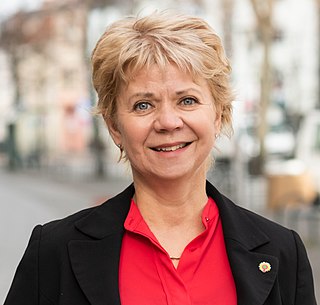
Cornelia Lüddemann is a German politician of Alliance 90/The Greens. Since 2016, she has served as chairwoman of the Greens parliamentary group in the Landtag of Saxony-Anhalt. She previously served as leader of the party's state branch from 2011 to 2016. She was the Greens lead candidate for the 2021 Saxony-Anhalt state election.

Altmark is an electoral constituency represented in the Bundestag. It elects one member via first-past-the-post voting. Under the current constituency numbering system, it is designated as constituency 66. It is located in northern Saxony-Anhalt, comprising the districts of Altmarkkreis Salzwedel and Stendal.

The Third Haseloff cabinet is the current state government of Saxony-Anhalt, sworn in on 16 September 2021 after Reiner Haseloff was elected as Minister-President of Saxony-Anhalt by the members of the Landtag of Saxony-Anhalt. It is the 10th Cabinet of Saxony-Anhalt.

Wolfgang Rauls is a German politician of the Free Democratic Party (FDP). He was the last leader of the National Democratic Party during the Wende, before its eventual merger into the Free Democratic Party. After German reunification, he entered state politics in Saxony-Anhalt, serving as Minister for the Environment and, eventually, Deputy Minister-President in the CDU cabinets from 1990 to 1994.




























